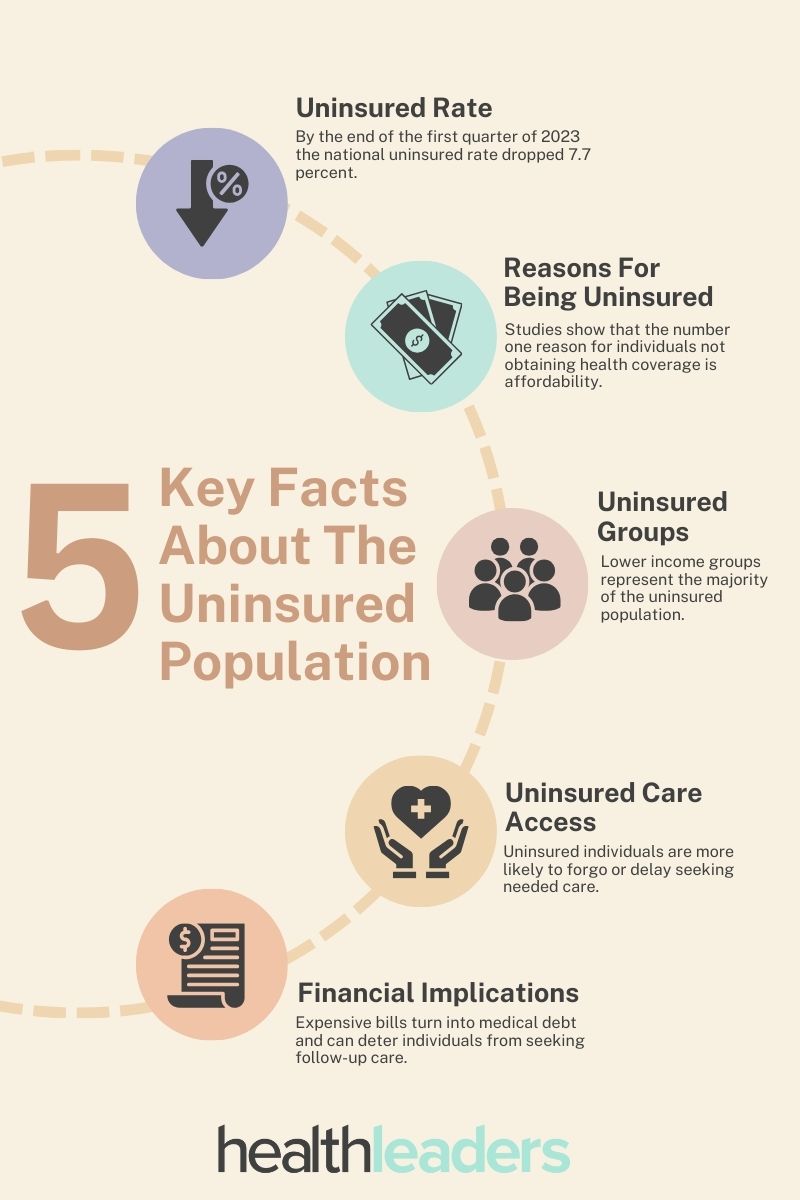The affordability of health coverage is often a barrier for many.
The number of uninsured individuals in the US has slowly dropped over the last few years. Initiatives like the Affordable Care Act and enhanced subsidies in the Marketplace have helped millions obtain affordable coverage.
By the end of the first quarter of 2023 the national uninsured rate dropped 7.7 percent. Between 2020 and 2023 the total number of uninsured Americans declined from 31.6 million to 25.3 million.
The group with the highest enrollment rate were individuals whose income was either below 100 percent or between 200 and 400 percent of the federal poverty level. Racial and ethnic disparities in health coverage also persist, despite enrollment gains over time.
According to KFF, the cost of insurance is the number one reason for individuals not purchasing coverage is affordability. In 2022, 64 percent of nonelderly uninsured adults cited the high cost of coverage as their main reason for not purchasing insurance.
Many also cannot access coverage through their jobs, in states that did not expand Medicaid, many lower-income adults still remain ineligible for financial assistance for coverage. Up until recently, undocumented immigrants were eligible for federally funded health insurance, but some states like California, Oregon and Washington have taken aim at this issue and have offered extended coverage to immigrants.
The Biden administration has made healthcare a major focus of its term, and that has certainly played a role in increased enrollment. The significant enrollment gains in 2021-2023 can be associated with the administration’s policies to support health insurance expansion.
Individuals who do not have health coverage often forgo or delay seeking needed care and this only exacerbates the healthcare needs of the nation, leading to more hospitalizations and care team burnout. Numerous studies repeatedly show that uninsured individuals are less likely than the insured to seek or receive preventative care and other services for major health concerns and chronic diseases like diabetes and heart conditions.
Not being able to secure health coverage can have massive financial implications. When individuals without insurance do seek care, they're often faced with expensive bills that they cannot afford. Since most of the insured population is a lower-income group, seeking care can quickly turn into medical debt affecting other financial aspects of the individual's life and possibly deter them from seeking follow-up care.

Marie DeFreitas is the finance editor for HealthLeaders.
